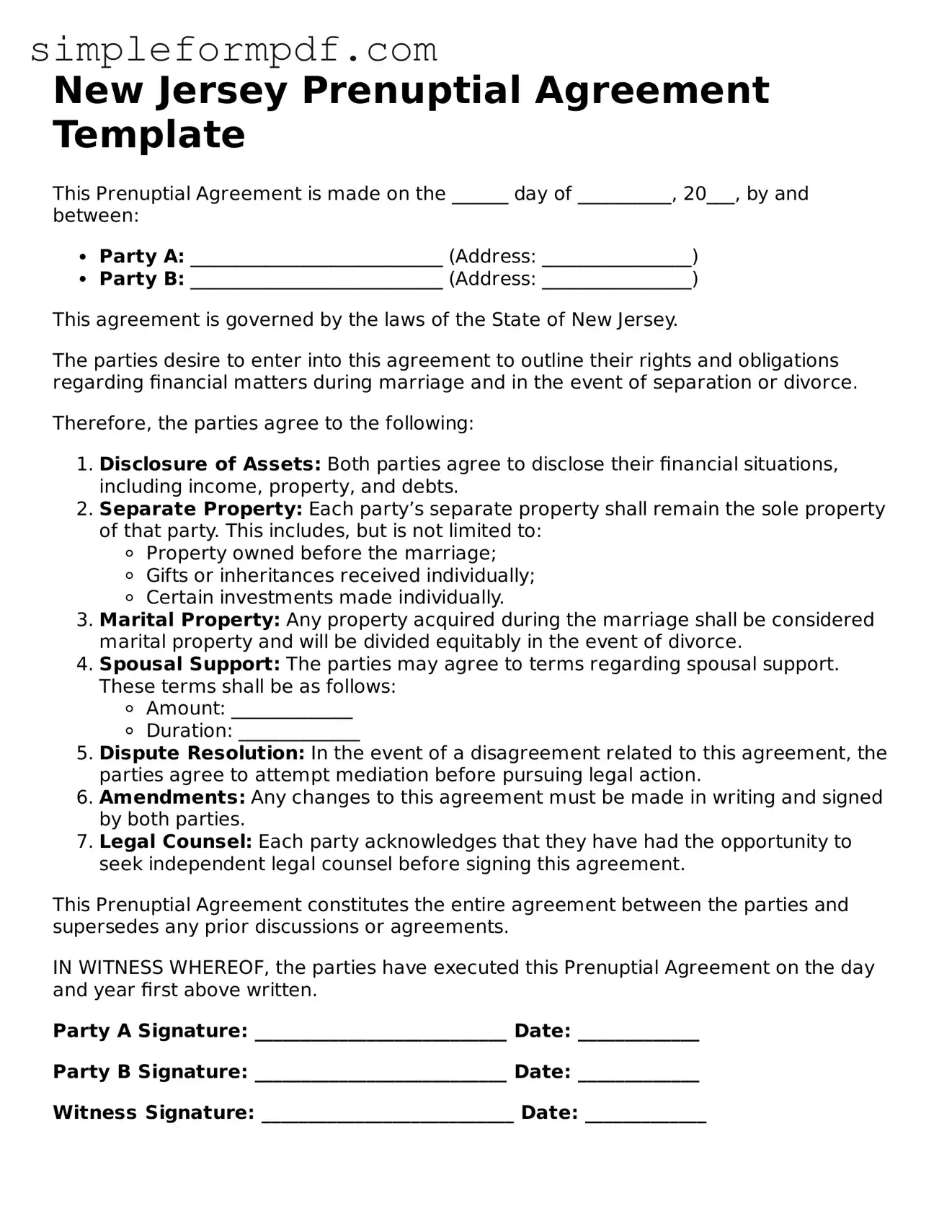Free Prenuptial Agreement Form for the State of New Jersey
A Prenuptial Agreement is a legal document created by two individuals before they marry, outlining how their assets and responsibilities will be managed in the event of a divorce or separation. This agreement serves to protect both parties and can help prevent disputes in the future. If you're considering a prenuptial agreement in New Jersey, it’s important to understand the specifics of the form and its implications for your relationship.
Ready to take the next step? Fill out the form by clicking the button below.
Launch Editor

Free Prenuptial Agreement Form for the State of New Jersey
Launch Editor
Need instant form completion?
Finish Prenuptial Agreement online in just a few minutes.
Launch Editor
or
Download PDF
